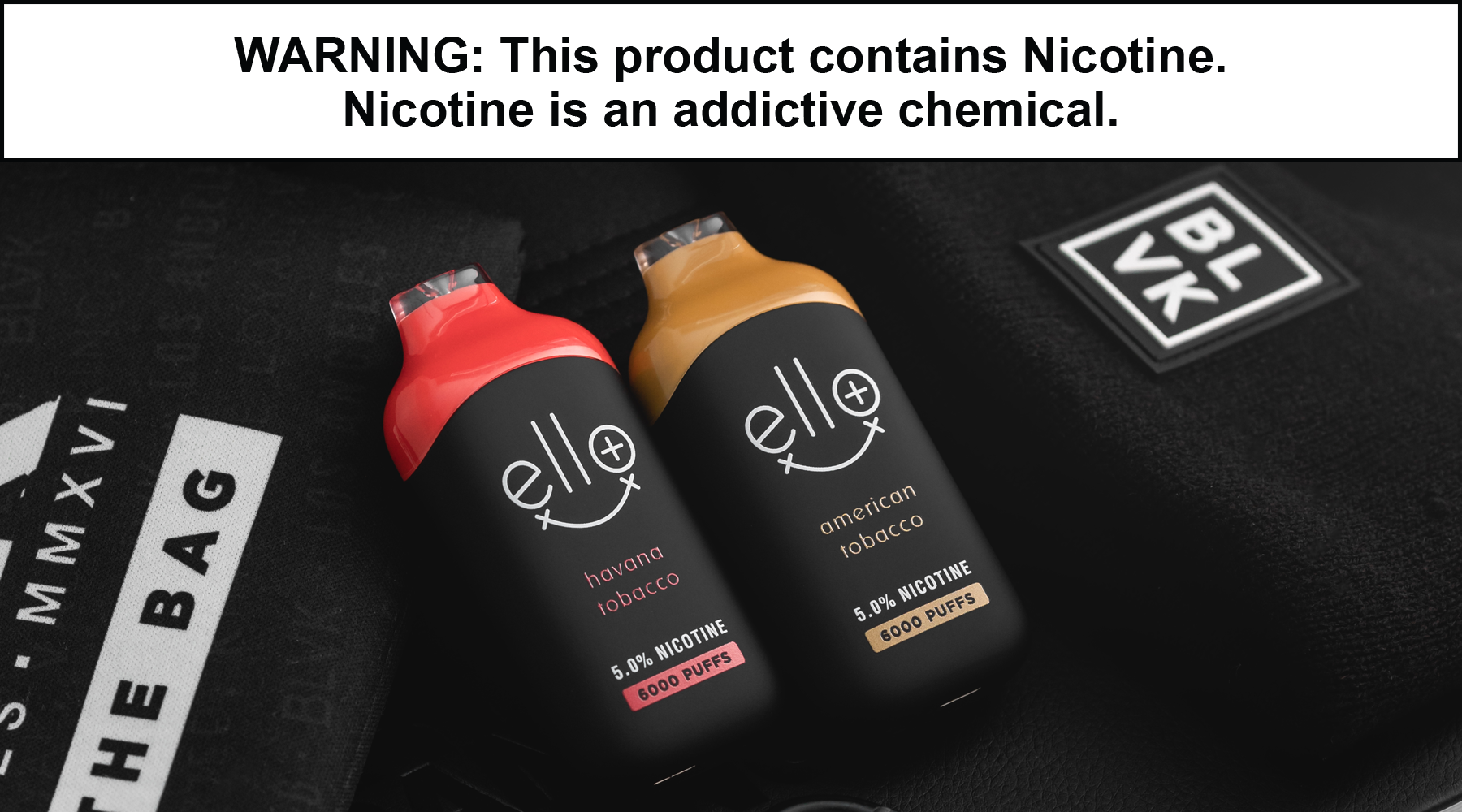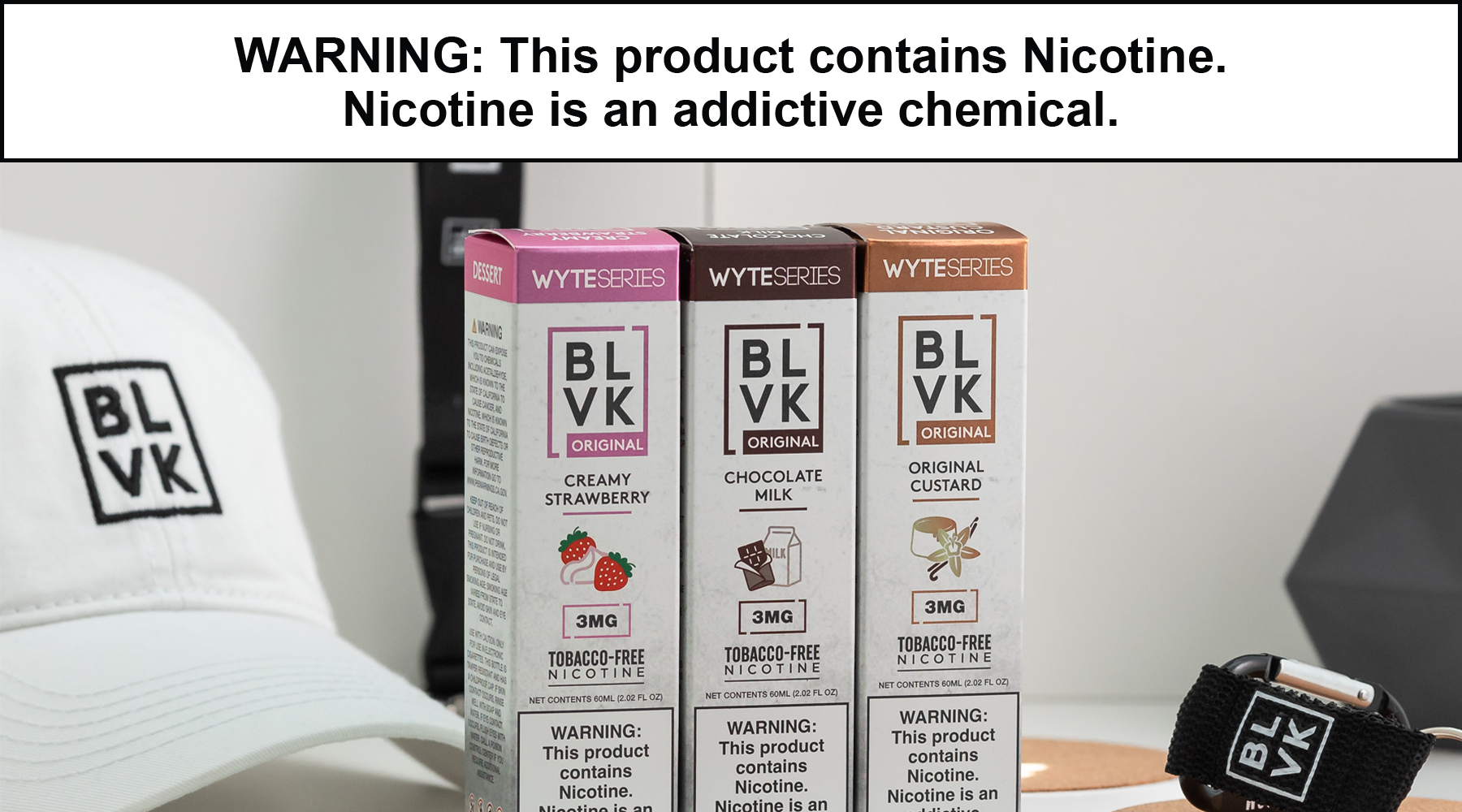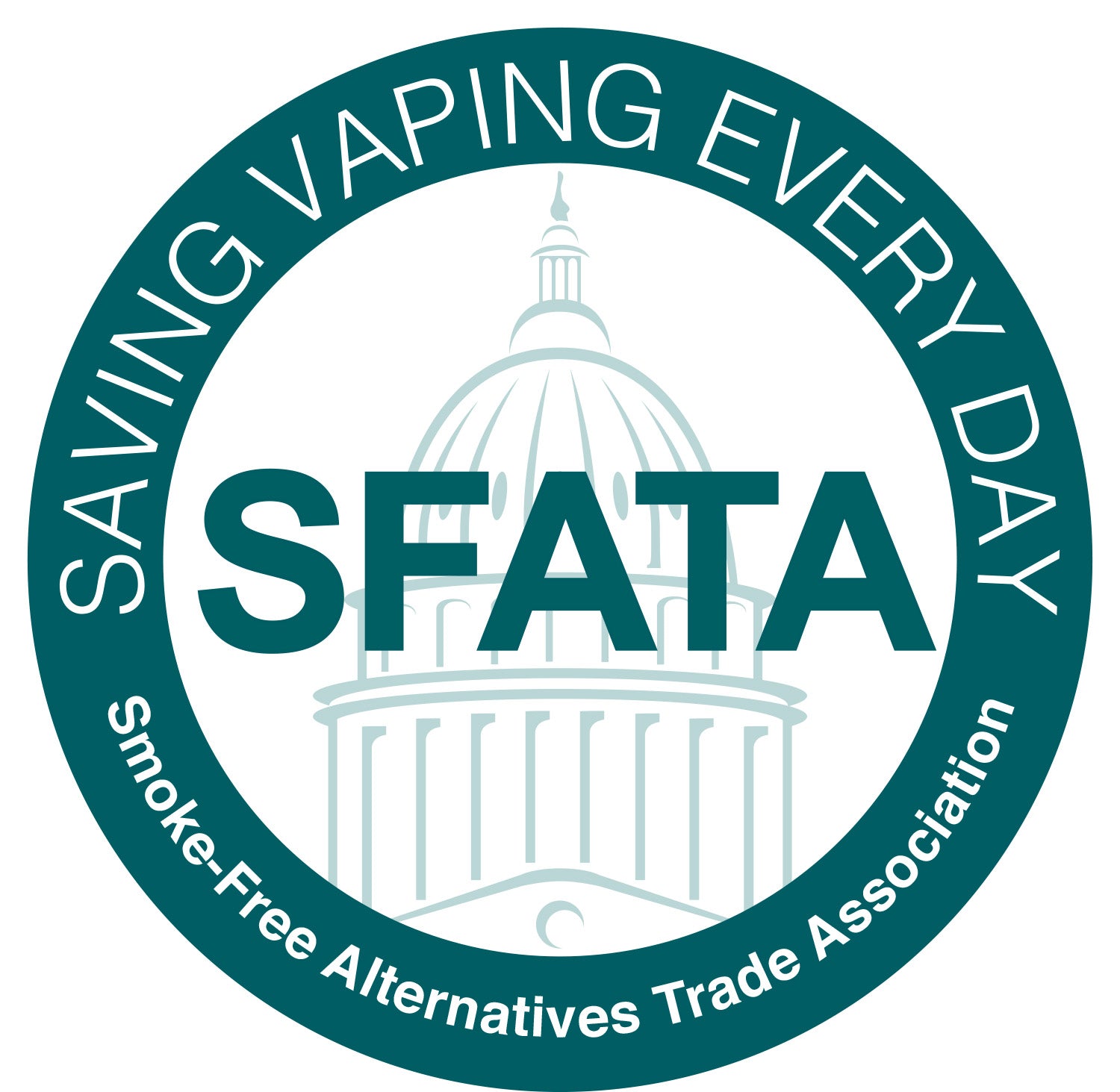We're going to do something a little differently today. Today, we want to breakdown the facts and separate it from the myths surrounding nicotine. Electronic cigarette companies, such as BLVK E-Liquid, which at this point, has been around for nearly a decade, sell one thing: an alternative assortment of products to traditional cigarettes. And all of these products contain one particular substance that we all crave: NICOTINE.
Now, to be clear, nicotine is a substance that is highly addictive and despite its addictiveness, delivers several benefits that ultimately help people not only achieve that all-too-familiar fix achieved from smoking cigarettes, but also an assortment of other therapeutic uses. However, thanks to a decades-long campaign against smoking, nicotine and tobacco have been used synonymously to effectively scare away any would-be smoker. Today, we'll be debunking fact from fiction as we explore exactly how dangerous nicotine can be.
The Facts: Nicotine is the Perfect Psychotropic Drug
Meet Dr. Paul Newhouse, Director of the Center for Cognitive Medicine in the Department of Psychiatry at Vanderbilt University Medical Center in Nashville, TN, that has been researching nicotine for over 30 years. He's been at the forefront of nicotine research well before the addictive substance became one of the most controversial and feared substances on the planet. And despite all this negative backlash courtesy of tobacco control groups and anti-vaping activists, he continues to shed light on what he calls, "...the perfect psychotropic drug."

What Makes Nicotine the Perfect Drug?
In the words of Dr. Newhouse attributing nicotine as the perfect psychotropic drug, he states "the nicotine receptors in the brain act as modulators, scanning the system and stimulating what needs to be stimulated and relaxing what needs to be relaxed. That's why you have a smoker who uses a cigarette to wake up and to go to sleep."
To reiterate, nicotine is seen as a net benefit to people's wellness, not a negative. This is considered an opposing opinion as most researchers use the terms 'tobacco' and 'nicotine' synonymously with demonizing vapes and other tobacco harm reduction options.
Newhouse is currently conducting a MIND (Memory Improvement through Nicotine Dosing) study that tries to prove whether nicotine can help improve memory and functioning in people diagnosed with mild memory loss or cognitive impairment. And while the study is still ongoing, early results have shown improvement in both attention and memory without significant side effects. Should the study conclude with favorable results, nicotine would soon be looked at seriously as a means to treat late-life depression and those with Alzheimer's disease.
Yes, Nicotine is Still One of the Most Addictive Substances in the World
Despite Newhouse's research assessing the benefits nicotine may possess, the fact of the matter remains is that nicotine is still one of the most addictive substances in the world. By 1988, the U.S. Surgeon General designated smoking as an addiction that was primarily driven by nicotine. Nicotine was deemed to have addictive properties based on three fundamental features: (1) the initial stages of use, more of it is required to produce the same effect in the user, otherwise known as tolerance; (2) it is "reinforcing," meaning that it is sufficiently rewarding to spur self-administration; and (3) abrupt cessation can lead to powerful cravings and recognizable withdrawal syndrome.
While the Surgeon General effectively villainized nicotine because of its association to cigarettes, the substance itself still did not pose a significant health risk other than by being highly addictive. In fact, the mild simulant is well known to enhance the performance several tasks including but not limited to: enhancing vigilance, rapid visual cue processing, sharpening memory, and increasing concentration and attention in the short term. On a more-long term basis, nicotine has been known to increase mood, level of arousal, and managing symptoms of anxiety and stress.
Since nicotine can create several benefits for a user, with the only drawback being addictiveness, one can reasonably remove more of the carcinogenic risk by simply separating the substance from smoking tobacco, right? Enter the role of e-cigarettes in the mid-2000s.
E-Cigarettes Highlight the Safety of Nicotine
The relative safety of nicotine alone is clear from animal studies and long-term observations of people who use medicinal nicotine for years. Researchers are therefore more definitive in their cases that harm reduction alternatives such as e-cigarettes, gum, patches, lozenges, inhalers, and sprays - all of which contain - USP-grade nicotine do not contain the nearly 6000 chemicals commonly found in cigarette smoke.
And despite nicotine still being an addictive substance, its presence in e-liquid and disposable vape devices still appear to be less addictive than its analog counterparts. A study published in the 'Nicotine and Tobacco Research' states vapers report being less irritable and less prone to the withdrawal effects of nicotine cessation compared to their feelings of frustration during cigarette cessation. This could be attributed to most e-cigarette devices delivering less nicotine per puff when compared to a cigarette.

E-cigarettes deliver less nicotine per puff and generally produce lower blood nicotine levels than cigarettes do. This means it takes longer for vaporized nicotine to reach its peak level than combusted tobacco would. These two variables - how high the level of nicotine is in the bloodstream and how fast that level is achieved are important in determining in how a drug would be abused.
Any would-be believer in harm reduction see the proof is in the pudding. The fact that nicotine itself is not a dangerous substance helps to change the narrative that nicotine and tobacco should no longer be used synonymously as a dangerous compound. Now that you know the facts, let's all work together to translate the facts into government rules that enable users to access nicotine that is not included in cigarettes, but rather, as other harm reduction tools that continue to provide that lower continuum of risk for users. After all, nicotine, is in fact, not as dangerous as we've come to believe.










Leave a comment
This site is protected by reCAPTCHA and the Google Privacy Policy and Terms of Service apply.